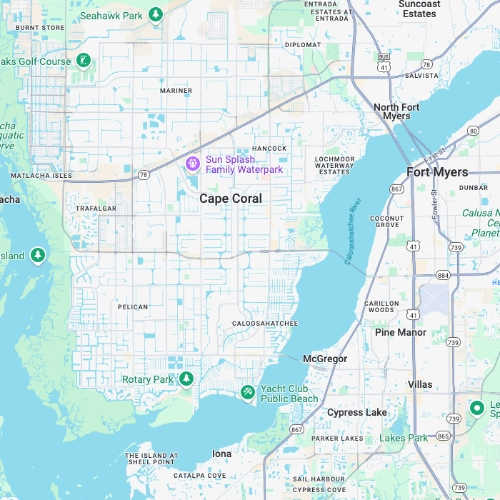Cape Coral

Buying land in Cape Coral, Florida, starts with identifying the right property by assessing whether it’s raw land or prepped for development, checking zoning classifications, and verifying ownership through county property records or GIS maps. Key factors to evaluate include accessibility via well-maintained roads, availability of utilities like water and sewer, and whether soil testing (perc tests) has been completed. Additionally, consider flood zone status, topography via tools like Google Earth, and building feasibility, as steep slopes can raise costs.
Important considerations also include compliance with Cape Coral’s building codes, land use regulations, zoning requirements, and life-safety standards. Property value is influenced by proximity to amenities like schools, hospitals, and shopping centers, as well as natural features like parks or less desirable areas like industrial zones. Conducting a market analysis by reviewing how long similar properties stay listed and comparing active listings helps position a competitive offer.
Finally, research comparable sales from the past year, as older data may not reflect recent price surges. Thorough due diligence on these aspects ensures a smoother land purchase process in Cape Coral.
